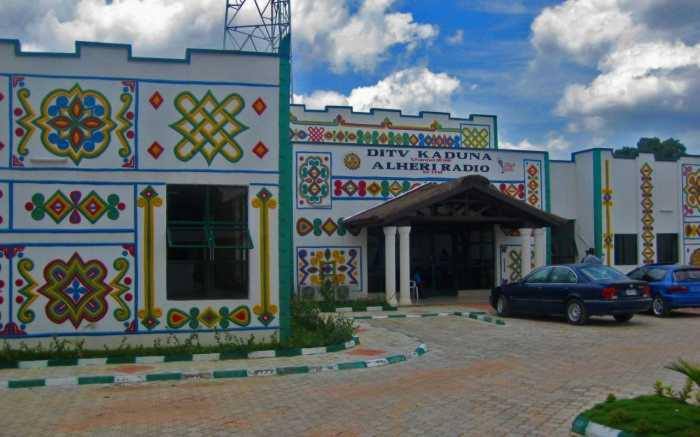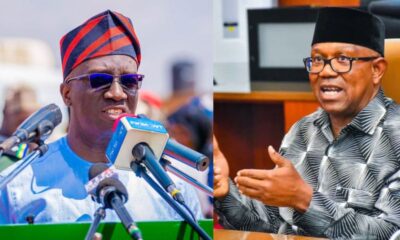Africa
Shutdown of Nigeria’s first private TV station: A Reflection Of Nigeria’s Broadcast Industry Challenges, by Fatima Sanusi

In a development that has sent shockwaves across Nigeria’s media landscape, the nation’s first private television station has announced its suspension of operations. This closure marks a significant moment in Nigeria’s broadcasting history, not only because of the station’s pioneering status but also due to the broader implications for the country’s media sector. The challenges that led to this shutdown, including high operational costs, declining revenues, and regulatory bottlenecks, reflect the precarious state of the industry.
The now-defunct station had been a trailblazer, paving the way for private media in a sector once dominated by government-controlled outlets. For decades, it symbolized the democratization of information, bringing diverse voices and perspectives to millions of Nigerians. However, the harsh realities of operating in an unstable economic and regulatory environment have proven to be insurmountable for even the most established players in the field.
At the heart of the station’s closure lies the issue of rising operational costs. In Nigeria, power supply remains unreliable, forcing media organizations to rely heavily on diesel-powered generators. The surging cost of diesel, coupled with inflation, has made energy expenses one of the biggest financial burdens for broadcasters. Additionally, the devaluation of the naira has significantly increased the cost of importing broadcasting equipment, further straining budgets. These factors have pushed operational costs to levels that many stations can no longer sustain.
Advertising revenue, traditionally the lifeblood of television stations, has also been in steep decline. With Nigeria’s economy struggling, businesses have been slashing their advertising budgets, leaving media houses with dwindling income. Compounding this issue is the rise of digital platforms, which are increasingly capturing both audiences and advertising dollars. Traditional broadcasters now face the dual challenge of competing with global streaming giants and adapting to a rapidly evolving media landscape.
Regulatory challenges have only added to the woes of the broadcasting industry. Media organizations in Nigeria are required to obtain multiple licenses and comply with stringent regulations, which often involve significant costs. Critics have long argued that the current regulatory framework stifles innovation and growth in the sector. Without reforms to reduce these burdens and foster a more enabling environment, the survival of many private media houses remains uncertain.
The human cost of this shutdown is devastating. Hundreds of employees have lost their jobs, from journalists and producers to technical staff and administrative workers. For many, the station was more than just a place of employment; it was a platform for creative expression and professional growth. The loss of such opportunities further exacerbates Nigeria’s unemployment crisis, particularly in a sector that has traditionally been a significant source of skilled jobs.
The implications of this closure go beyond the immediate impact on the station and its staff. It raises critical questions about the sustainability of Nigeria’s media sector in the face of economic and technological challenges. Policymakers and industry stakeholders must recognize that the survival of the media is vital not only for economic reasons but also for the health of Nigeria’s democracy. A vibrant and independent media is essential for holding power to account, promoting transparency, and fostering informed public discourse.
To address these challenges, several steps must be taken. First, the government should consider providing targeted subsidies or tax breaks for media organizations, particularly in areas like energy costs. Second, there is a need to invest in the digital transformation of traditional media, enabling broadcasters to compete effectively in the digital age. Partnerships between private media houses and tech companies could provide the resources and expertise needed to modernize operations.
Additionally, regulatory reforms are essential. The government and regulatory bodies must work to streamline licensing processes and reduce unnecessary bureaucratic hurdles. A more supportive regulatory framework could encourage investment in the sector and foster innovation.
The shutdown of Nigeria’s first private TV station is a wake-up call for the entire industry. It highlights the urgent need for a comprehensive strategy to address the challenges facing broadcasters. Without such efforts, more media houses could follow in the footsteps of this station, leading to a significant loss of jobs, diversity, and innovation in the sector.
As Nigeria navigates this critical juncture in its media history, the closure of this iconic station should serve as both a cautionary tale and a call to action. By addressing the root causes of the industry’s challenges, Nigeria can ensure that its media sector not only survives but thrives, continuing to play its essential role in the nation’s democracy and development.
Fatima Sanusi a 300 level Student from Mass Communication Department Borno State University Maiduguri.



























